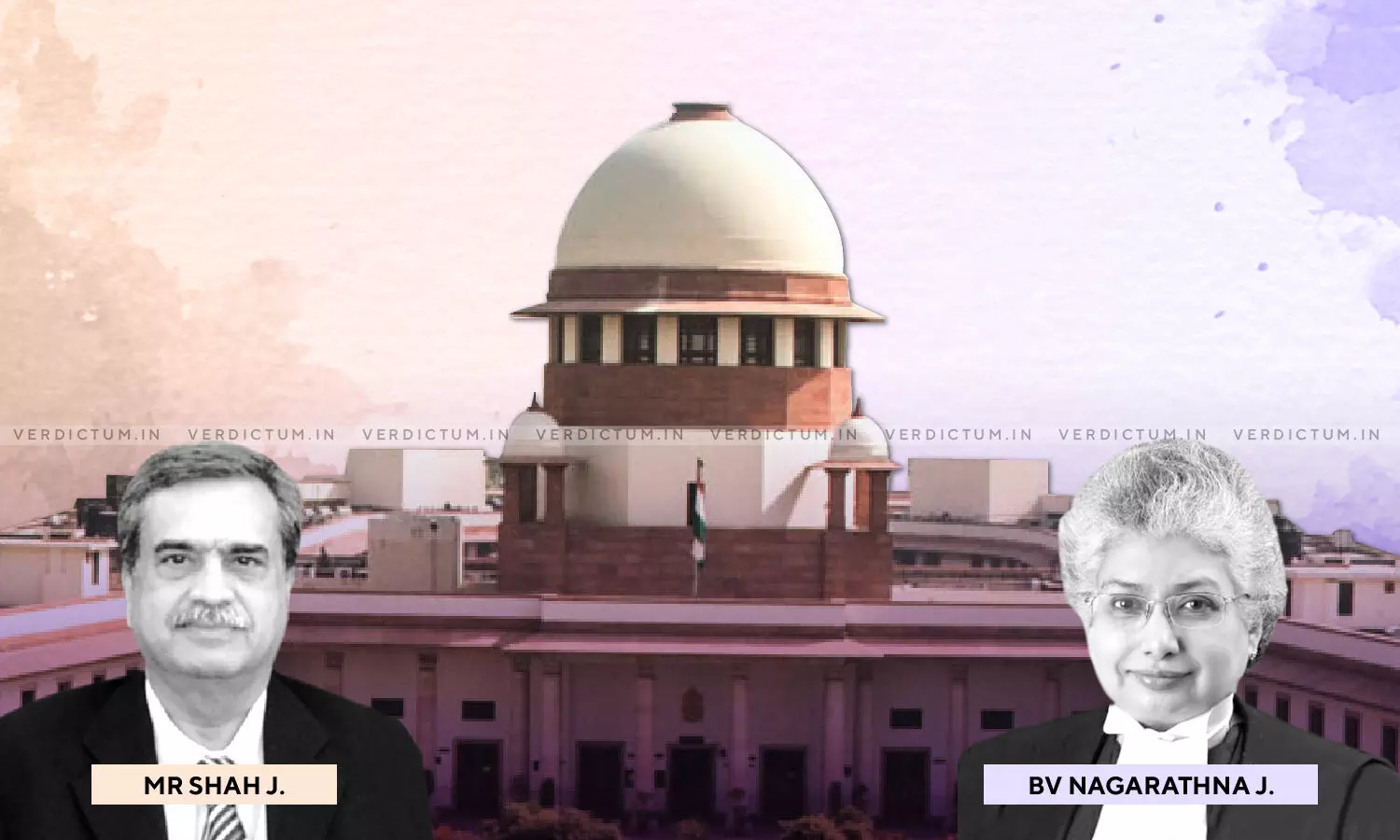
Right Available To Judgment Debtor To Save Property Shouldn't Be Affected By Bonafide Mistake - SC
 |
|Right Available To Judgment Debtor To Save Property Shouldn't Be Affected By Bonafide Mistake - SC
The Supreme Court has observed that the right available to the judgment debtor to save his property should not be affected on technical ground and/or bonafide mistake for which he was not responsible.
"Thus, the right which is available to the judgment debtor under Rule 60 is a most valuable right available and the same shall not be permitted to be affected on the technical ground and/or bona fide mistake for which he cannot be said to be at fault.", the bench of Justice MR Shah and Justice BV Nagarathna.
Notably, the provisions of the statute and the legislative intent embodied in Rule 60 of the Second Schedule of the Income Tax Act, 1961 provides a course of last resort to the judgment debtor to save his property.
In this case a bank namely, IndusInd Bank Ltd filed an application before the Debt Recovery Tribunal, Ahmedabad (DRT) for recovery of debt and enforcement of security against the original borrowers. Recovery Certificate was issued in favour of the Bank for recovery of an amount of Rs.71,88,819.87/- recoverable from the original borrowers.
Their immovable properties also got attached in pursuance of the above Recovery Order/Certificate.
A proclamation of sale of the properties came to be issued by the Recovery Officer and as per the proclamation, the amount due and payable was Rs.1,27,30,527/- including interests. In the auction, the bid of original writ petitioners being the highest offer came to be accepted by the Recovery Officer.
The original borrowers thereafter filed an application under Rule 60 for setting aside the above auction and submitted a Demand Draft for an amount of Rs.1,27,30,527/- as specified in the sale proclamation.
The Bank claimed that there was some shortfall in the amount deposited by the borrower but no calculation sheet was attached to the reply.
When the calculation sheet was submitted according to it, one of the borrowers - deposited a further sum of Rs.77,647/- with the Recovery Officer, which was over and above Rs. 2.80 lakhs deposited.
The Recovery Officer thereafter passed an order allowing the application submitted by the borrower by holding that the borrower had deposited the requisite amount for setting aside the sale. Accordingly, the sale of the properties in question came to be set aside. Immediately after, the borrowers executed two sale deeds in favour of the appellant herein for a sale consideration of Rs.1,40,89,855/-.
The auction purchasers preferred an appeal before the DRT, Ahmedabad which set aside the Order passed by the Recovery Officer. The appeal against this Order came to be allowed and the auction sale was set aside by DRAT.
The auction purchasers approached High Court and the High Court set aside the Order of the DRAT and consequently confirmed the sale in favour of auction purchasers.
Feeling aggrieved the subsequent purchaser - respondent No.5 – M/s. R.S. Infra-Transmission Ltd. approached Supreme Court.
Senior Advocate Guru Krishnakumar appeared for appellant whereas Advocate Neeraj Shekhar appeared for respondents.
The Court observed that the mistake on the part of Recovery Officer had led to the shortfall in the deposit of the amount, which was towards the interest for the period between 30th June 2006 to 8th January 2007. The Court observed that otherwise, the judgment debtor had substantially complied with Rule 60.
"If the Recovery Officer would have been accurate in submitting the exact amount in the sale proclamation due and payable on the date of sale proclamation then the eventuality which has arisen in the present case would not have arisen. There was an absurd misconduct on the part of the Recovery Officer for which the judgment debtor should not be made to suffer.", the Court opined.
The Court held that the right available to the judgment debtor under Rule 60 is a most valuable right available and that it should not be permitted to be affected on the technical ground and/or bona fide mistake for which he cannot be said to be at fault.
The Court noted that the High Court had not appreciated and considered the fact that for the inaccuracy and/or mistake on the part of the Recovery Officer, the judgment debtor cannot be made to suffer for no fault of his.
"As observed and held hereinabove, when the substantial amount was deposited, there was no reason for the judgment debtor not to deposit the shortfall, which as such can be said to be very meagre amount.", the Court observed.
Accordingly, the Court set aside the High Court Order and restored the Order of DRAT setting aside the auction sale.
Click here to read/download the Judgment